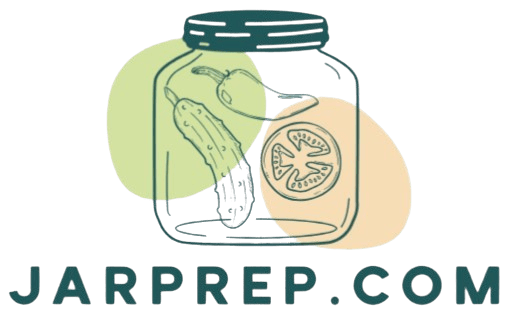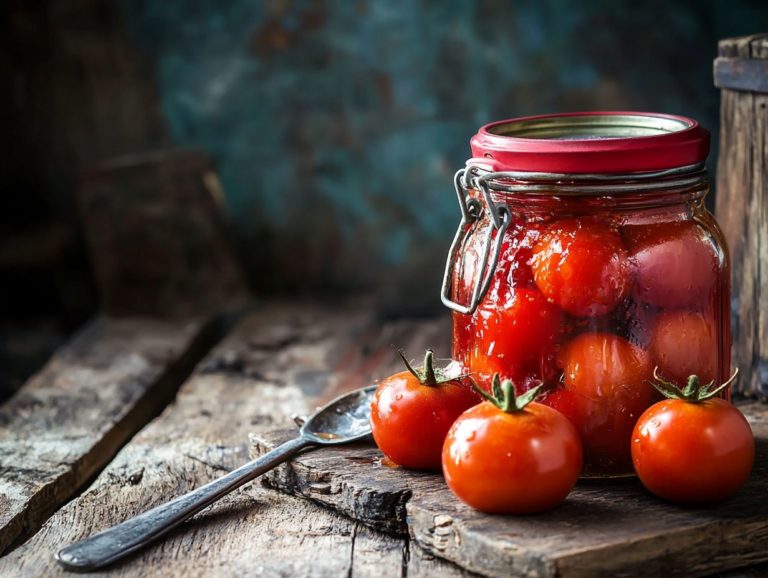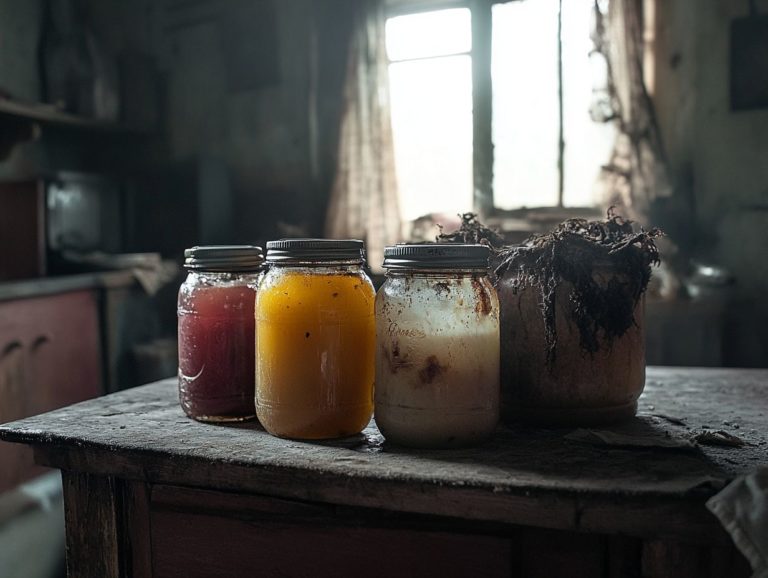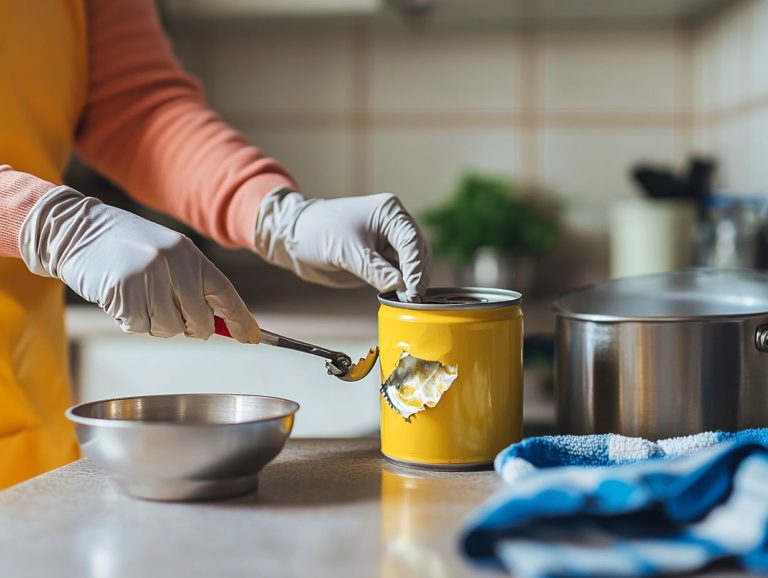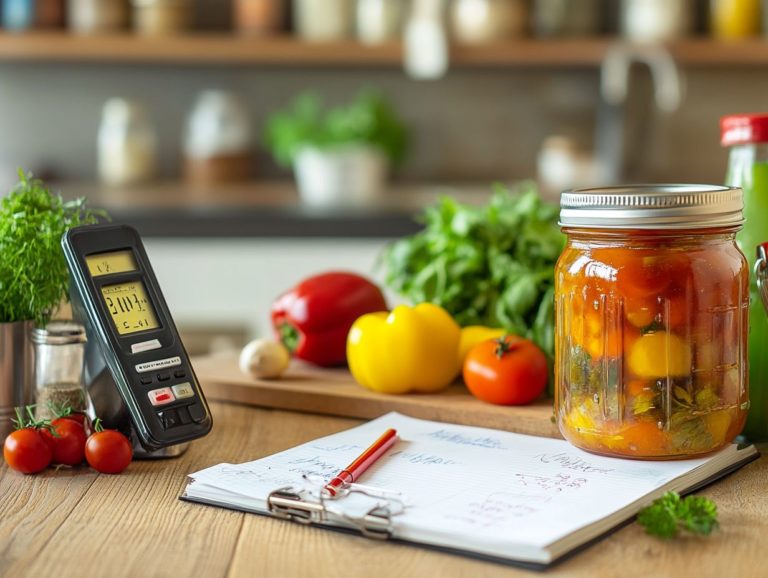What to Do When Your Canned Food Spoils
Canned food provides remarkable convenience and longevity, especially when it comes to home-canned foods. However, it s not entirely free from spoilage.
Understanding the causes of food spoilage is essential for safe kitchen practices. This knowledge helps you make informed choices to ensure food safety.
This guide is designed to help you identify spoiled canned goods, recognize the telltale spoilage signs, and learn the best methods for proper disposal.
You ll also discover effective storage tips to prevent spoilage. It’s important to know when to seek medical attention for potential health risks associated with foodborne illness. Stay informed to keep your meals safe and enjoyable, considering factors like dietary needs and nutrition goals!
Contents
- Key Takeaways:
- Understanding Food Spoilage
- Identifying Spoiled Canned Food
- Handling Spoiled Canned Food
- Preventing Canned Food Spoilage
- When to Seek Medical Attention
- Frequently Asked Questions
- What to Do If Your Canned Food Spoils?
- What Are the Signs That Canned Food Has Spoiled?
- Can I Still Eat Canned Food If It Is Past the Expiration Date?
- What Is the Best Way to Dispose of Spoiled Canned Food?
- Can I Prevent Canned Food from Spoiling?
- What should I do with unopened canned food that is past the expiration date? It’s important to check food labels and assess the quality packaging before deciding.
Key Takeaways:
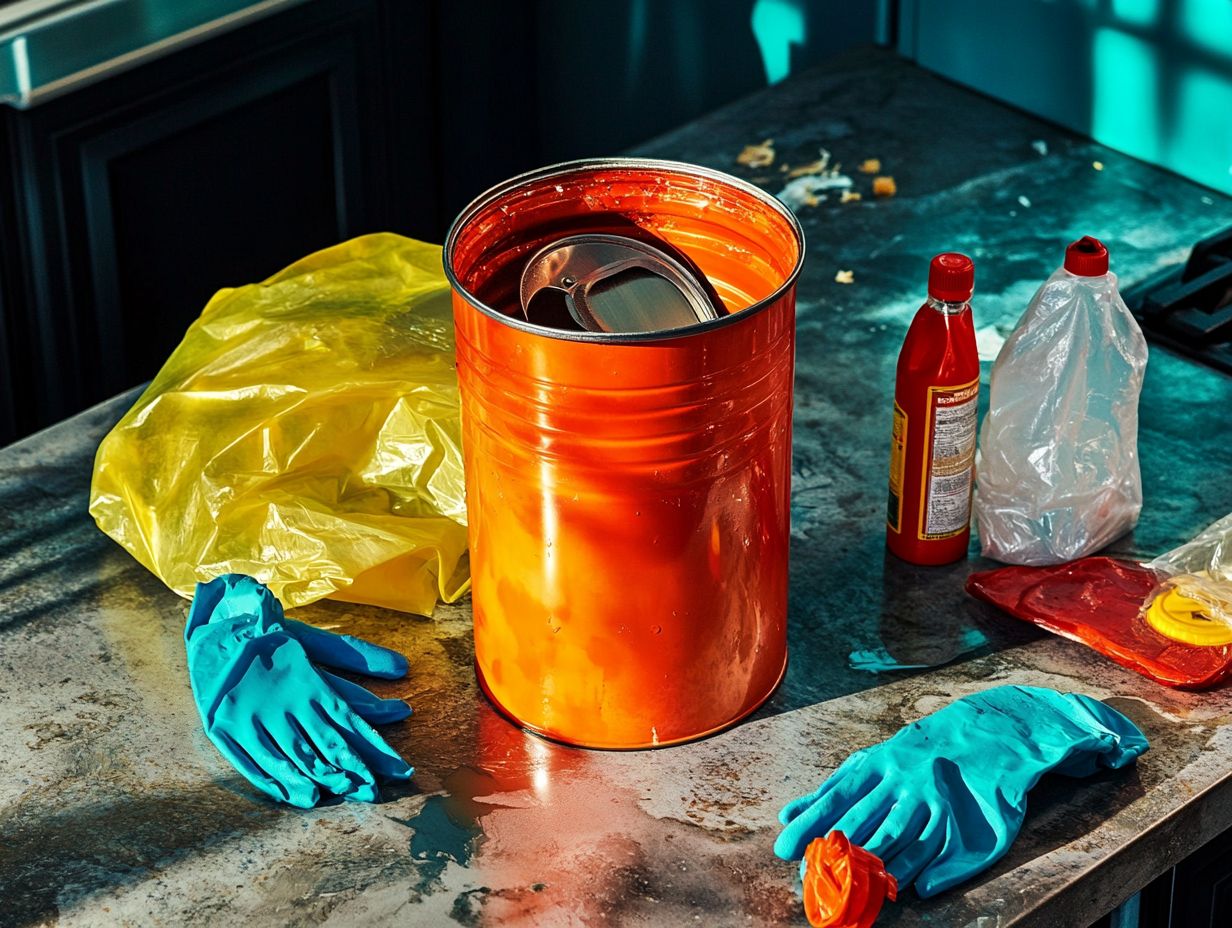
- Properly dispose of spoiled canned food to prevent foodborne illnesses, including botulism and other health risks.
- Look for signs of spoilage, such as foul odors or visible mold, to identify if canned goods have gone bad.
- Prevent canned food spoilage by storing it in a cool, dry place, using airtight containers, and monitoring expiration dates.
Understanding Food Spoilage
Food spoilage is a major concern in food preservation, particularly with home-canned foods. It can pose serious health risks, including foodborne illnesses like botulism.
Understanding the nuances of food spoilage is crucial for anyone engaged in the canning process.
Spoilage can vary significantly depending on the acidity levels of the foods. This includes low-acid items like beans and tomatoes, or high-acid fruits. This knowledge gives you the power to recognize the signs of spoilage in your canned goods.
By doing so, you ensure safe consumption and adherence to proper food handling practices.
Causes and Types of Food Spoilage
Food spoilage can arise from various causes, and grasping these factors is essential for mastering effective food safety and preservation practices, especially with home-canned foods.
Key contributors to spoilage include the growth of bacteria and mold, chemical reactions, and physical changes. These issues can worsen due to improper storage methods or the specific acidity levels of your foods.
Microbial activity is a primary offender, comprising bacteria, molds, and yeasts that flourish under the right conditions. Chemical changes, like oxidation or enzymatic reactions, can also compromise food quality, diminishing flavor, color, and nutritional value.
You should also monitor environmental factors such as temperature and humidity, as they play a significant role in preventing spoilage. Try food preservation techniques like canning or freezing to extend shelf life.
Coupled with safe storage practices such as maintaining optimal temperatures and using airtight containers you can effectively stave off unwanted spoilage.
Being aware of these issues is crucial for anyone committed to preserving the integrity of their food.
Identifying Spoiled Canned Food
Identifying spoiled canned food is crucial for safeguarding your health, especially when it comes to home-canned foods and pantry staples.
Keep an eye out for common signs of spoilage: discoloration, odd odors, bulging lids, and unusual textures. These red flags suggest that the food may have lost its nutritional value and could even pose a risk of foodborne illness.
Being vigilant about these indicators protects you and ensures that your pantry remains a haven for safe and nutritious food.
Signs to Look For
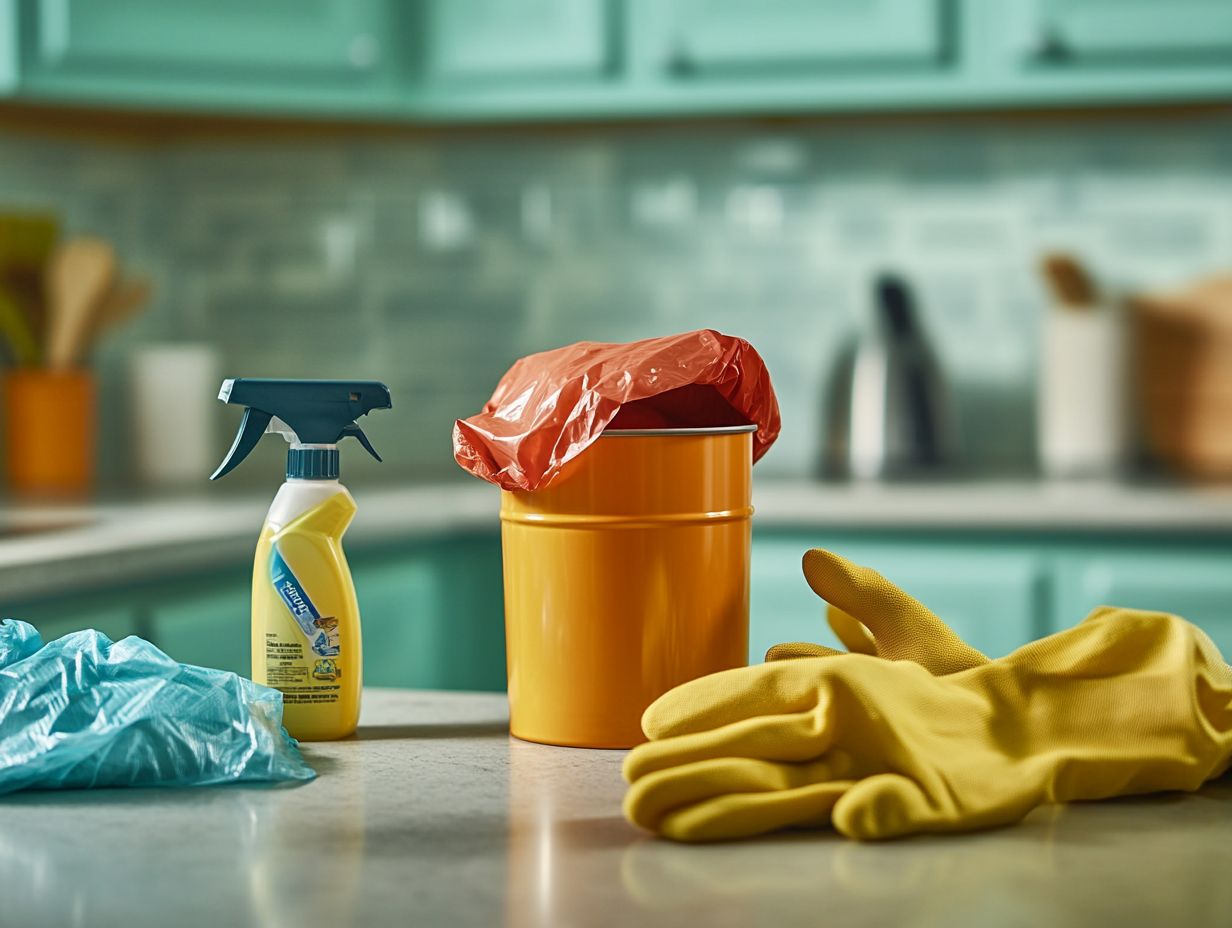
When you’re checking for spoiled canned food, it’s essential to be aware of the key spoilage signs to ensure your food safety and avoid potential health risks, especially with home-canned goods. Keep an eye out for unusual smells, mold growth, discoloration, or any leakage around the lid these are clear indicators that the food might not be safe to consume.
A bulging can is a serious warning sign, as it may indicate gas buildup from bacterial activity, making it an immediate red flag for spoilage. Be mindful of expiration dates; even unopened cans can lose quality over time.
Handle your cans with care any dents or severe corrosion can compromise their integrity. To enhance food safety further, inspect your storage conditions. Keeping your canned goods in a cool, dry place can significantly prolong their shelf life.
By being vigilant about these signs and tips, you can ensure that your food remains safe and nutritious for enjoyable meals.
Handling Spoiled Canned Food
Handling spoiled canned food demands your utmost attention to safety protocols to reduce the risk of foodborne illness and contamination.
When identifying spoiled food, make it a point to wear rubber gloves and use a bleach solution for cleaning surfaces. This ensures that any harmful bacteria or toxins, like a serious illness caused by bacteria that can grow in improperly canned food, aren t inadvertently transferred during the disposal process.
Prioritize these precautions to keep your kitchen safe and your health intact.
Proper Disposal Methods
Proper disposal methods for spoiled canned food are crucial for preventing food contamination and safeguarding public health. Avoid tossing compromised food items into compost piles, as they can attract pests and lead to further issues. Instead, consider disposal methods that create a safe and sanitary environment.
Start by checking your local waste management guidelines; many municipalities have specific protocols for disposing of waste that can be harmful to health or the environment, including spoiled canned goods. Sealing the cans in a plastic bag before discarding them in the trash can help prevent leakage and odor, minimizing the risk of luring in rodents or insects. Some communities even offer food waste collection services, which present a more responsible alternative for managing spoiled food.
By utilizing these services, you not only help reduce landfill waste but also ensure the proper handling of spoiled items, contributing to the protection of both public health and the environment.
Preventing Canned Food Spoilage
Don t let your canned food spoil! Here s how to keep them fresh and delicious. Preventing canned food spoilage is essential for preserving the quality and safety of your home-canned treasures, ensuring they remain reliable pantry staples for an extended period.
By creating optimal storage conditions maintaining ideal temperatures and humidity levels, employing vacuum seal techniques, and respecting expiration dates you can significantly enhance the longevity of your canned goods.
Storage Tips and Tricks
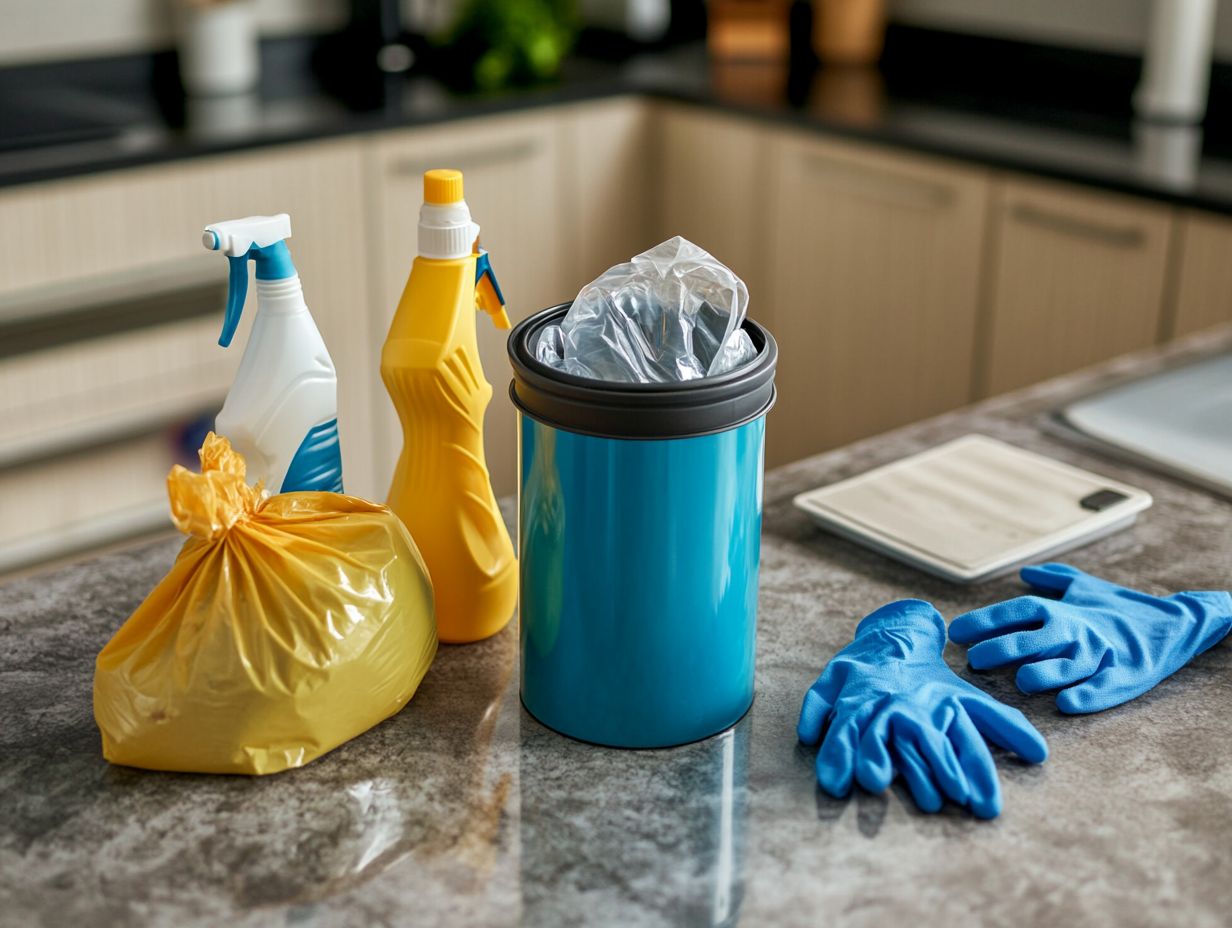
Implementing effective storage tips and tricks can significantly enhance the longevity and safety of your canned goods, making them reliable options for your home-canned foods. Utilize air-tight containers, store your canned goods in cool, dark places, and ensure that lids are properly sealed to help mitigate spoilage risks and maintain food safety.
It s wise for you to monitor the temperature and humidity levels in your storage area. Ideal conditions typically range between 50 F to 70 F, and keeping humidity below 15% can greatly reduce the risk of mold developing on labels or seals.
When storing different types of canned goods, organizing them by expiration dates can further prevent food waste. Periodically check each can for signs of bulging or rust as these could indicate spoilage.
By implementing these specific strategies, you can ensure that your canned goods remain safe and flavorful for as long as possible. Take these steps today to keep your pantry safe!
When to Seek Medical Attention
Understanding when to seek medical attention after consuming potentially spoiled food is essential for protecting your health and well-being, especially in cases linked to severe foodborne illnesses like botulism. You should never overlook symptoms such as nausea, vomiting, and abdominal pain, as they can signify serious health risks that may adversely affect your diet goals and overall well-being.
Being proactive in these situations is key to maintaining your health. Act quickly!
Possible Health Risks from Consuming Spoiled Food
Consuming spoiled food poses serious health risks that can manifest in various symptoms, depending on the type of spoilage and the food involved, especially when it comes to canned goods. Foodborne illnesses, such as botulism, can emerge from improperly canned low-acid and high-acid foods, presenting significant health threats.
These illnesses can lead to uncomfortable symptoms like nausea, vomiting, and abdominal pain, all of which can disrupt your daily activities. Other prevalent foodborne diseases include salmonella and E. coli infections, often resulting from spoiled meats, dairy products, or contaminated vegetables.
By implementing proper food safety practices, you can greatly reduce these risks. Here are some essential tips:
- Follow recommended canning procedures
- Check expiration dates
- Maintain a clean kitchen environment
Being aware of the consequences associated with spoiled food not only safeguards your health but also fosters a collective commitment to food safety.
Frequently Asked Questions
What to Do If Your Canned Food Spoils?
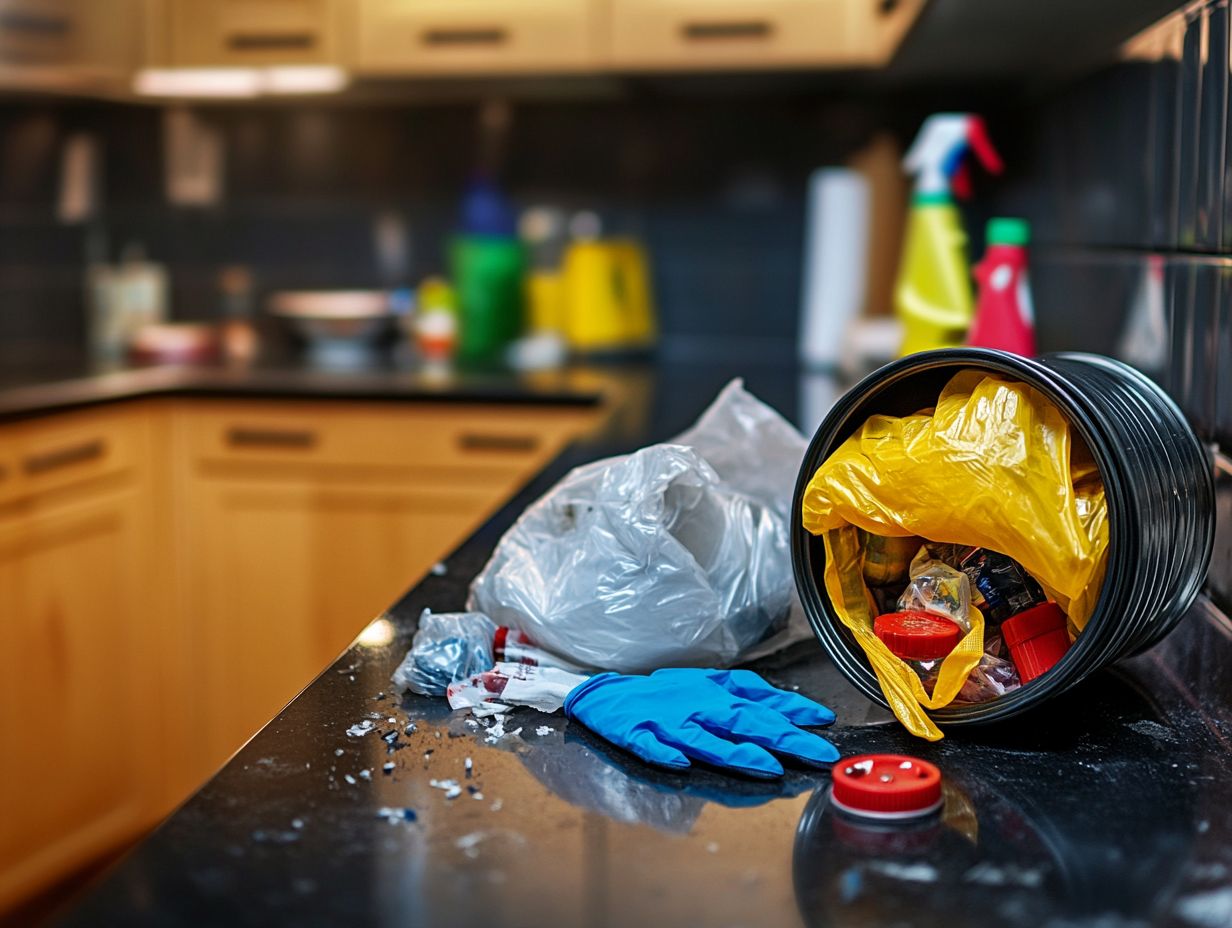
If you discover that your canned food has spoiled, it is important to dispose of it immediately. To ensure safe disposal, use rubber gloves and a bleach solution to clean any surfaces that may have been contaminated.
What Are the Signs That Canned Food Has Spoiled?
It is crucial to recognize spoilage signs to prevent foodborne illness. The most common signs that canned food has spoiled are a foul odor, a bulging or dented can, and visible mold growth. Be aware of spoilage bacteria that can thrive in improperly stored canned foods.
Can I Still Eat Canned Food If It Is Past the Expiration Date?
Understanding expiration dates is vital for food quality. You can safely consume canned food after its expiration date, especially for low-acid foods like beans and tuna, as long as the can is not damaged and there are no signs of spoilage.
What Is the Best Way to Dispose of Spoiled Canned Food?
Proper disposal is essential to prevent any risk of food contamination. The best way to dispose of spoiled canned food is to seal it in a plastic bag and throw it in the trash. Use cleaning equipment and maintain clean surfaces after handling.
Can I Prevent Canned Food from Spoiling?
Implementing food preservation methods can extend the shelf life of your pantry staples. While canned food typically has a long shelf life, it can still spoil due to factors like rust on cans. To prevent this, store your canned food in a cool, dry place and consume it before the expiration date.
Stay safe and check your pantry today!
What should I do with unopened canned food that is past the expiration date? It’s important to check food labels and assess the quality packaging before deciding.
If the canned food is in good shape, you can still consume it after the expiration date. Always prioritize your safety! When in doubt, throw it out!
Be cautious of signs of spoilage, especially from botulism toxin, which is a harmful bacteria found in spoiled food. If you notice any issues, it’s best to discard the can.
